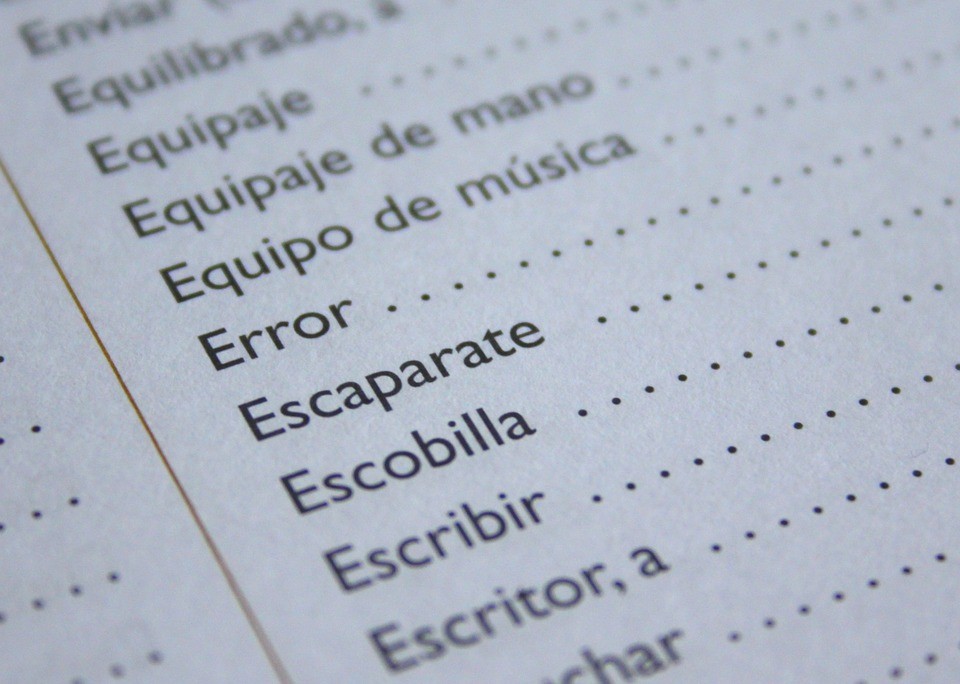10 THINGS YOU SHOULD NEVER SAY TO A LANGUAGES STUDENT
My University is incredibly academic. We have a range of students, from Medicine to Chemical and Electrical Engineering. And, whilst I don't doubt that their courses are difficult, I feel that languages are often undermined and seen as 'easy options'. Foreign languages stretch from French, Spanish, and Italian to Russian, Chinese (Mandarin) and more. So, whilst this is addressed to my home university, I think universities across the UK, and maybe globally, are guilty of this.
Read and let me know what you think, or if you've experienced this! Especially the 'ERASMUS is a holiday' line that I get ever so often.
10 THINGS YOU SHOULD NEVER SAY TO A FOREIGN LANGUAGES STUDENT
1) Say something to me in French/Spanish/whatever language you learn!
Thank you! You have now made your minds go into overdrive, and now, we’re attempting to find an obscure extract from a Guy de Maupassant classic – and after about five minutes of deliberating and panicking over whether we’ve got the pronoun in the right place (is it le lui or lui le? ), we will probably end up saying something along the lines ofJ’adore le cinéma, then hating ourselves for not being able to think of something creative. So unless you want us to start asking you to recreate Monet’sWater Lilypainting, solely because you said you study Fine Art, please don’t ask us this.
2) Are you from there….? Why do you want to learn it then?
No, you don’t have to be Russian or Spanish to study either language. There are some of us who have family connections to a country, and therefore, feel an affinity with the language, however, there are also lots of us who just love learning languages or are more talented in foreign languages than other subjects.
3) So you want to be a teacher?
Don’t get me wrong, there are lots of modern languages students who do want to be teachers, however, this isn’t particularly more so than students who are learning other disciplines. There are plenty of job opportunities for modern languages students, hence why so many combine their degree with International Relations, Business and other disciplines such as Geography, History and other humanities/arts subjects.
4) So you’re going to be a translator?
Unfortunately, many people have the mindset that becoming a translator is simple. Most students who wish to become translators or interpreters require a Masters or need to study at a translation school for a good few years post-degree to be qualified to become translators. The same goes for interpreting! Unfortunately, the majority of us won’t become translators at the UN. However, we do have transferable skills that can be used in a number of job roles, and modern languages students go to work in a range of roles from marketing, international buying, journalism roles to aid workers.
5) Doesn’t everyone speak English?
Too often English speakers seem to think that English is the most important language in the world. Yes, many people around the world may be able to speak English, however, there are more Spanish and Chinese speakers in the world, so don’t be fooled into thinking English is the most spoken language! With more and more multinational companies in the UK, students who have knowledge of foreign languages are increasingly in demand.
6) You’re only doing it for the year abroad, right? It’s a holiday in the middle of your course!
Yes, there is nothing more fun about prepping for a holiday in which you have to find somewhere to live yourself in a foreign country (this includes understanding tenancy agreements and consulting with landlords or university accommodation organisations), setting up a bank account, setting up insurance, setting up a phone contract, mountains of paperwork in a language you are not fluent in, not to mention then having to deal with university admin and signing up to classes in a place where you have no idea how things work, or going straight into a job full of professionals who have a job to do, and don’t have time to make things easy or understandable for you. Oh yeah, and on top of that, you have to learn to adapt to a complete new culture, and tackle dealing with homesickness! We’re lucky not to have a nervous breakdown before we’ve even left the country.
7) You’re so lucky, you don’t have to do anywhere as much as reading as I do!

Yes, I do feel sorry for the Classics and History students who have a mountain of reading dished out to them on a weekly basis. But, please don’t use this as a way of making our degree look like a doss! Whilst we may not have to read as much, often, a lot of us have to read 3-5 foreign language books each semester or 1 film a week if we take film modules, as well as having to hand in summaries, translations, and essays, alongside oral preparations, aural preparations, grammar exams, vocabulary tests, written and reading exams. It’s not a walk in the park for us, either!
8) So do you just learn languages?
A favourite of mine. Unfortunately, some family and friends seem to think that I spend my degree learning the colours of the rainbow and basic phrases in French, Spanish and Italian. The reality is that whilst learning oral skills (that includes pronunciation and intonation), we, modern languages students, also have to learn how to adopt punctuation in our language amongst a million other grammar points (pronouns, negations, tenses – the list is endless), how to learn to develop our listening skills, our reading comprehension skills, our written language skills (from emails and letters to newspaper articles), and a range of vocabulary (which includes slang! ), and ALL of this whilst attempting to study the cultural aspects of the country from film, art and literature to the science-side of language through linguistics. Don’t underestimate the amount we have to learn PLEASE.
9) Just use translate websites
Ok, maybe in year 9, Google Translate provided all the language support we needed – however, unless we wanted our work to look like a five year-old attempting to write an adaptation of a Shakespeare play, we really can’t be using translation websites. Even better, some phrases we are required to translate aren’t even available on the Internet, so telling us just to go on Word Reference isn’t all too helpful either.
10) OMG you’re not fluent?
Most modern languages students have been studying their respective languages since starting secondary school, and if you ask, the majority will probably state that they are not yet fluent. It is incredibly difficult to learn a language fully, unless you are living in this country or exposed to it for a long period of time! Don’t make us feel bad about ourselves, we’re all trying to get there!
Photo gallery
Content available in other languages
Want to have your own Erasmus blog?
If you are experiencing living abroad, you're an avid traveller or want to promote the city where you live... create your own blog and share your adventures!
I want to create my Erasmus blog! →




















Comments (0 comments)